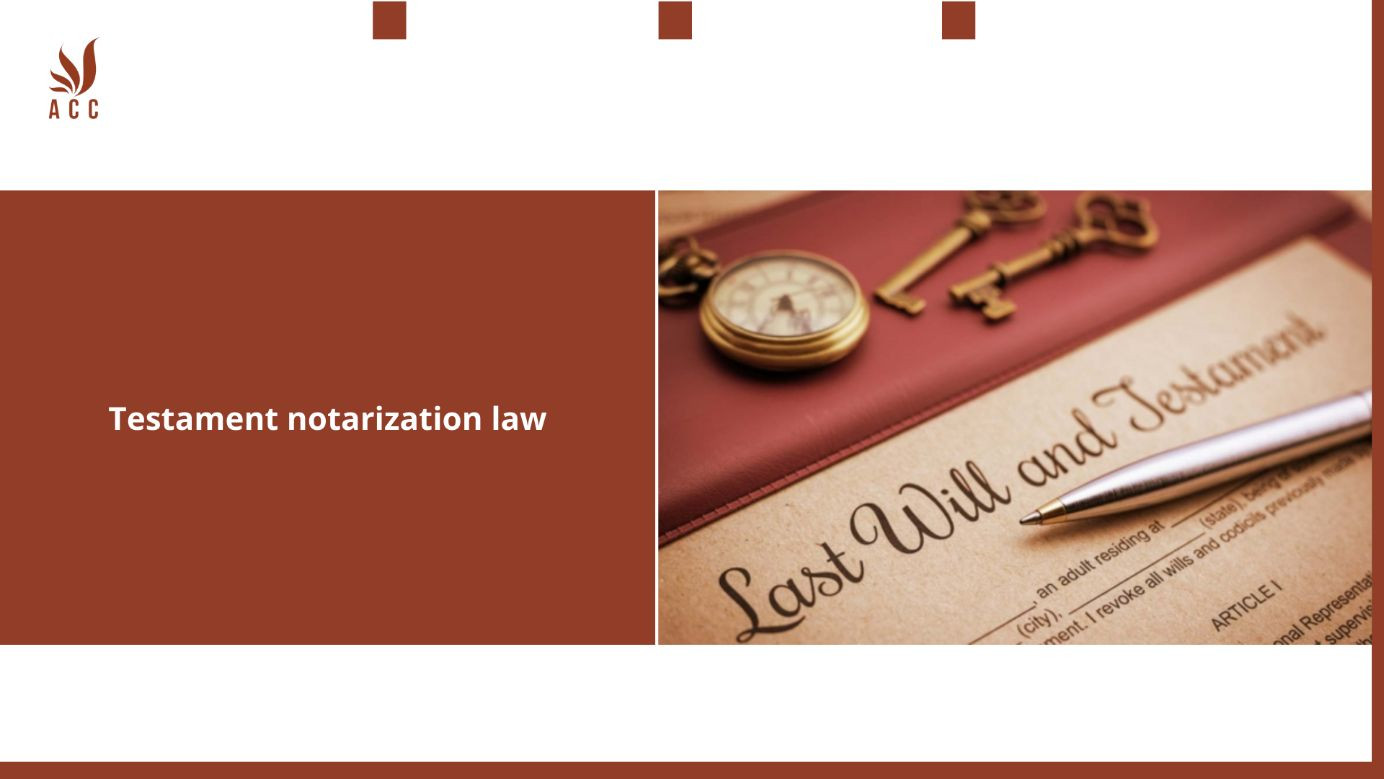Testament notarization law refers to the legal requirements and procedures related to having a last will and testament (testament) notarized by a notary public. Notarization involves the act of a notary public verifying the authenticity of a document, including a will, and confirming the identity of the person signing it (the testator). Here are key aspects of testament notarization law:

1. Notary Public:
A notary public is a public officer who is authorized by the state to perform various legal functions, including notarizing documents. Notaries serve as impartial witnesses to the signing of important documents to prevent fraud and ensure their authenticity.
2. Voluntary Process:
Testament notarization is typically a voluntary process. While it's not required in all jurisdictions, having a will notarized can add an extra layer of security to the document's validity and can make it more difficult to challenge the will's authenticity.
3. Verification of Identity:
Notaries are responsible for verifying the identity of the testator. This often includes checking government-issued identification, such as a driver's license or passport, to ensure that the person signing the will is indeed the testator.
4. Witnessing the Signing:
The notary public witnesses the signing of the will by the testator. The testator must physically appear before the notary to sign the document. Electronic notarization may be allowed in some jurisdictions where electronic signatures are permitted by law.
5. Notarial Certificate:
After the signing, the notary attaches a notarial certificate to the will, which includes information about the notarization, such as the date, location, and the notary's seal and signature.
6. Notary Seal:
The notary's seal or stamp is affixed to the notarial certificate to further authenticate the document.
7. Recording:
In some cases, notarized wills may need to be recorded with a government agency, such as a probate court or county clerk's office, to ensure that they are a matter of public record.
8. Legal Requirements:
The legal requirements for testament notarization can vary by jurisdiction. It's essential to understand and comply with the specific notary laws and regulations in your area.
9. When using ACC Law Firm's testament, entrepreneurs will receive
10. Q&a
What is testament notarization, and why is it important in the context of wills?
Testament notarization is the process of having a notary public officially verify the signing of a will by the testator (the person creating the will). It involves the notary public confirming the testator's identity, witnessing the signing of the will, and affixing their seal and signature to the document. This process is crucial in establishing the authenticity and legality of the will, helping prevent fraud and disputes.
What are the benefits of having a will notarized?
Notarizing a will offers several benefits, including:
Enhanced Credibility: A notarized will is less likely to be questioned or challenged in court because it provides strong evidence of the testator's identity and intent.
Deterrence of Fraud: Notarization discourages fraudulent creation or alteration of wills.
Peace of Mind: Knowing that your will has been properly notarized can provide peace of mind that your wishes will be carried out as intended.
Is testament notarization required by law in all jurisdictions?
Not all jurisdictions require testament notarization for a will to be valid. The legal requirements for wills, including notarization, can vary by state or country. Some jurisdictions may accept wills that are solely witnessed, while others may have specific notarization requirements. It is essential to consult the laws of your specific jurisdiction to understand the notarization requirements for wills.
What should one expect when getting a will notarized?
To get a will notarized, you will typically need to schedule an appointment with a notary public. During the appointment, you should bring the unsigned will and a valid form of identification. The notary will verify your identity, witness the signing of the will, and then apply their seal and signature to the document. It's important to note that notaries are neutral witnesses and do not provide legal advice, so you should consult an attorney for any legal guidance related to your will.
Nội dung bài viết:






Bình luận